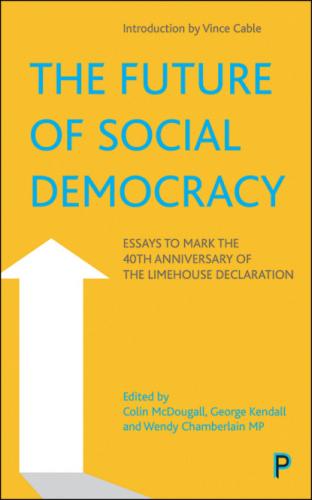We must also be careful about making superficial judgements. Instead, we should work hard to understand what people really mean. Ian Kearns, director of our sister group, the Social Liberal Forum, has talked about an experience in Germany.2 Locals feared the settling of angry young male refugees in their village, but when the proposal changed to settling refugee families with young children, they agreed to it. In the same way, if we meet communities in the UK who express similar concerns, we must engage with them. We certainly should not dismiss their concerns as racist.
Some of their concerns were the result of past government decisions. In 2004, Tony Blair’s government decided to open its borders immediately rather than apply transitional controls. They predicted EU immigration to the UK would be between 5,000 and 13,000. In practice, the migration was far higher. By 2007, 112,000 had entered the UK from new EU member states in a single year.3 This may have undermined the trust of many of the voters who have deserted the centre-left and who became disillusioned with the EU. However, this loss of confidence in the centre-left need not be permanent as long as we actively engage with these voters.
We should also consider the warnings of Michael Sandel4: by pursuing meritocracy without creating a level playing field for those without a privileged background, the liberal Left has abandoned the working class. In Chapter Eight, entitled ‘How do we deliver social justice through education?’, Stephen Williams proposes a series of policies to improve life chances for the disadvantaged. Sandel also calls for the redistribution of esteem, as well as money, to those doing work that does not require a degree. This cannot be done easily, and will require genuine engagement with these people.
Conclusion
Social democracy has dramatically improved the lives of people across Britain in the last century but it has lost support to populists in recent years. This collection of essays by leading social democrats and liberals aims to promote new social democratic thinking to arrest this decline.
While this will not be straightforward, we should not despair. In the 1930s, there was a fatalism among many democrats that the future belonged to fascism and communism. It did not. Nor do all the signs show that populism is on the rise. Polling shows that opposition to immigration has softened since the Brexit vote,5 support for most forms of benefit remains high,6 the hostility to those on benefits that existed around 2005 has subsided7 and, within Western Europe, opposition to minority groups is low.8
If we learn from past mistakes, and engage with the concerns of ordinary people, the proposals in the excellent essays in this book can be delivered, and the lives of many improved.
Notes
1‘Mook: Clinton’s “deplorables” comment “definitely could have alienated” voters’, CNN, December 2016. A study showed that Clinton’s ‘deplorables’ comment had the greatest impact in alienating undecided voters.
2‘Building a “do tank” not just a think tank with Ian Kearns’, LibDem Podcast, YouTube, August 2020 (23.09 minutes in).
3Erica Consterdine (2016) ‘The huge political cost of Blair’s decision to allow Eastern European migrants unfettered access to Britain’, theconversation.com, November, https://theconversation.com/the-huge-political-cost-of-blairs-decision-to-allow-eastern-european-migrants-unfettered-access-to-britain-66077
4The Guardian (2020) ‘Michael Sandel: “The populist backlash has been a revolt against the tyranny of merit”’, September, www.theguardian.com/books/2020/sep/06/michael-sandel-the-populist-backlash-has-been-a-revolt-against-the-tyranny-of-merit
5There is a preference in the UK for reduced migration but it has softened since the Brexit vote. See ‘UK public opinion toward immigration: overall attitudes and level of concern’, https://migrationobservatory.ox.ac.uk/
6John Hudson and Neil Lunt, ‘Winning support for the safety net’ (Table 4, p 17), https://england.shelter.org.uk/__data/assets/pdf_file/0003/1359741/Winning_Support_for_the_Safety_Net_Short_Report.pdf
7The Economist (2019) ‘Our attitudes to welfare have undergone a quiet revolution since Benefits Street’, The Economist, 18 July, https://inews.co.uk/news/politics/our-attitudes-to-welfare-have-undergone-a-quiet-revolution-since-benefits-street-315596
8Gallup polling in 2019 showed opposition to minority groups in Europe is relatively low in Western Europe but high among supporters of radical right-wing parties. See: www.pewresearch.org/global/2019/10/14/minority-groups/
Introduction: what are the priorities for social democrats?
Vince Cable
Political parties that could be described as social democratic have been in decline for some years, particularly in the countries where they have historically been strongest: Britain, Germany and in Scandinavia. Others, which were loosely associated, outside the Western world, as in India and Brazil, have largely disappeared. Almost everywhere, competing voices – nationalism, ethnically based populism and authoritarian ‘strong men’ – have drowned out the appeal of social democracy and captured a substantial section of the electoral base of social democratic parties. That base was in any event contracting because of structural change in the economy away from manufacturing and unionised employment, and the greater priority for younger voters of new issues like the environment. The main appeal of social democrats – that they offer the best of capitalism and socialism, both the economic effectiveness of the former and the fairness of the latter – was increasingly seen to be not credible or relevant.
The COVID-19 pandemic may produce big and long-term changes to the scenery against which political drama is being played out. It could hasten the decline of social democracy; however, it could also help it stage a revival. Certainly, the challenges now being thrown up are those to which social democrats have produced answers in the past: mass unemployment; the re-emergence of large-scale
